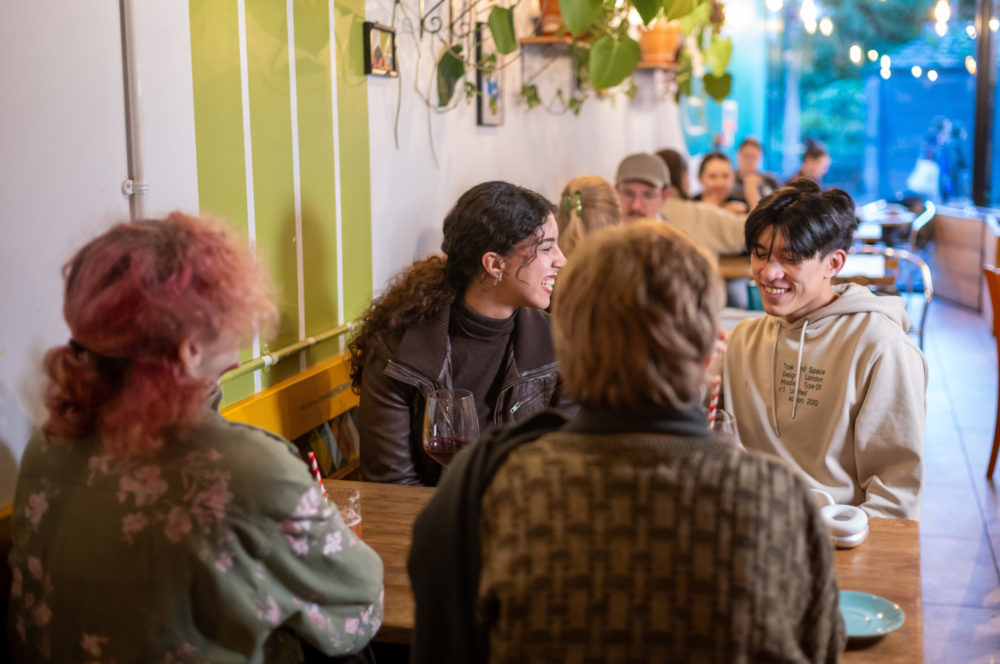Learning Welsh: neurons vs emotions

Aran Jones Author, SaySomethingIn
When I’m doing one-on-one intensive Welsh coaching, I always start by making the point that we have to solve for two different journeys.
The neurological journey, which is what most people worry about, is actually comparatively straightforward. The emotional journey, which is much more complicated and almost always the real reason people stop learning, is often completely ignored.
The neurological journey is the set of activities that create new memories in the brain, which in turn make it possible for you to say new things in Welsh.
Although people choose lots of different ways to try and solve this, at heart it really is just a matter of forming memories for words and for the ways those words fit into each other.
I believe it’s possible to do this in faster rather than slower ways, but any approach will eventually achieve these two goals, and turn you into a Welsh speaker.
There’s a catch, though.
Daily decision
Every approach will eventually get you there – but only if you keep on travelling. If you stop, it doesn’t matter how good the approach is – it only matters that you stopped. And that, of course, is why the emotional journey is so important.
I call it the emotional journey because the central element of this journey is the daily decision you face – am I going to try to learn some Welsh today? The answer will always be driven by your emotions.
You might tell yourself all sorts of stories to justify your emotions – I don’t have enough time, something came up at work, I need a bit more peace and quiet, there was a plague, locusts, a friend came in from out of town – but underneath the stories, if you feel like doing some Welsh today, you will. If you don’t, you won’t.
If you feel like doing some Welsh on enough days, you’ll become a Welsh speaker. And again, if you don’t, you won’t.
This means that the most important part of learning Welsh is making sure that the emotional journey is successful – and that can be a surprisingly complicated challenge.
Over the years, I’ve come to believe that the key to it is trust. You have to trust that what you’re doing is going to turn you into a Welsh speaker.
When people really believe that what they’re doing is going to make them successful, they keep doing it – whether they’re adult learners of Welsh, or children at school.
When they believe at some level that what they’re doing is a waste of time, they will always find a way to stop doing it.
This makes the first hour particularly important. The sooner you get the taste of success of being able to say something – anything! – in Welsh, the sooner you’ll begin to believe that you might be capable of becoming a Welsh speaker.
Focus on speaking
For SaySomethinginWelsh, which is heavily focused on speaking, one of our main challenges in the first hour is to try and make sure that you understand that making mistakes is a good thing, and is actually a sign that you’re learning.
It’s not easy to convince people of this! I’ve talked about this to ex-Welsh rugby captains, to successful writers and actors and presenters, and I can promise you that it is a rare person who can simply accept mistakes as a good thing.
These days, thanks to my friend and collaborator Tom, I’m starting to talk about misTAKES – it’s just like an extra take when someone’s acting, and when you’ve done enough takes, you’ll have what you want.
We also have to deal with the dreaded ‘perfect learner’. This is never an actual person – it’s just who you’re comparing yourself to when you think ‘I should be doing better than this’.
Every single learning journey is different – everyone has a unique path to the language – and ‘should’ is never a useful word.
You can, sadly, convince yourself that you’re so far away from achieving what you ‘should’ be achieving that you get sick of it and give up – which is the only way in which you can end up not speaking Welsh.
I’d love to have a magic switch that helps everyone to trust that they can become a Welsh speaker.
I never will have, though – it’s already clear that everyone I work with will need a slightly different approach – and everyone who learns with SaySomethinginWelsh will need to hear different things at different times.
We can’t make that happen perfectly, but we can and will keep on trying to find new and more effective ways to give people trust in their own brains.
Because every single time we see someone trust their own brains, and keep on travelling, and keep on forming new memories, we see them – eventually – become a Welsh speaker.
Find out more about SaySomethingIn here.
Support our Nation today
For the price of a cup of coffee a month you can help us create an independent, not-for-profit, national news service for the people of Wales, by the people of Wales.





